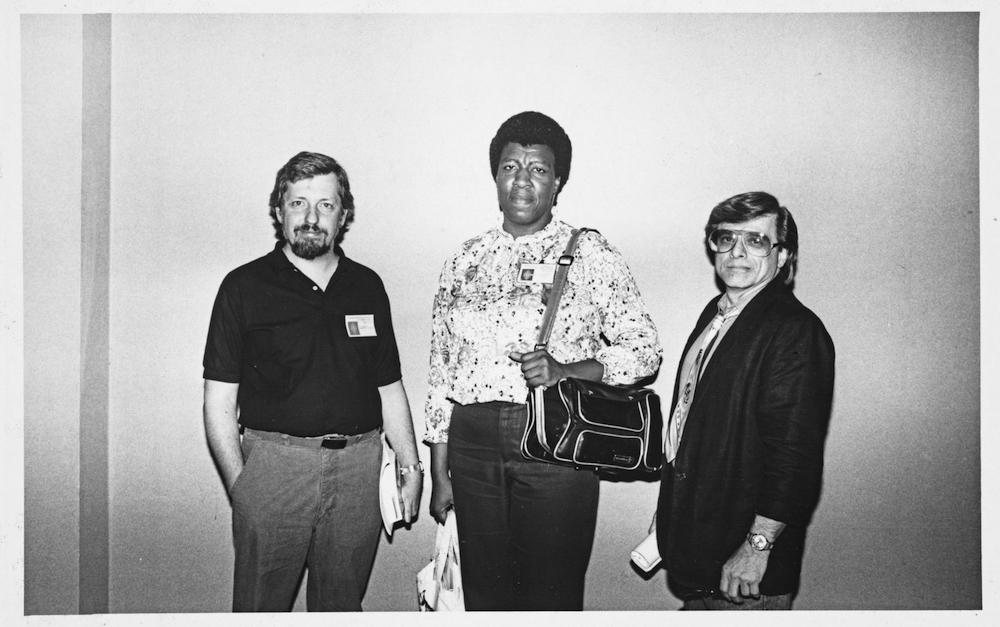
Ryan Christopher Coleman
As a part of their ongoing exhibition “Dreaming the Universe: The Intersection of Science, Fiction & Southern California,” the Pasadena Museum of History hosted an evening dedicated to celebrated Pasadena author Octavia E. Butler this past Thursday. Butler died in 2006, but during her lifetime was the author of twelve novels and one collection of short stories. She was the recipient of numerous prestigious awards, including two Hugos and two Nebulas (top honors in her genre, science fiction), and in 1995 became the first science fiction writer to receive a MacArthur Genius Grant.
The evening centered around a lecture entitled “Telling My Stories: The Pioneering Fiction of Octavia E. Butler,” given by Natalie Russell, Assistant Curator of Literary Manuscripts at the Huntington Library. Russell was introduced by both Brad MacNeil, Director of Education and Public Programming for the Pasadena Museum of History, and Kenneth Marcus, past President of the Historical Society of Southern California.
When Butler unexpectedly passed away in 2006, it was revealed she had bequeathed her entire collection—drafts, research materials, correspondence, photographs and ephemera—to the Huntington, thanks in large part to the tireless efforts of past Manuscript Curator Sue Hodson. Russell spent three years combing through the collection, piecing together a cohesive arc through Butler’s creative life. The result is the Octavia E. Butler collection, 8,000 individually cataloged items and more than 80 boxes of additional items for scholars to pore through.
And pore through they have. “Without doubt,” Russell assured the audience, “this collection has been among the top five most in demand since its debut in 2014.” The Huntington also houses literary collections from such titans of the field as Jack London, Christopher Isherwood, and Charles Bukowski, whose collection Russell also organized.
“With Octavia, the work is diverse, so the scholarship is diverse,” Russell noted. The collection has seen not just the expected cultural historians and literary scholars looking for a window into the idiosyncratic writer’s mind, but anthropologists, sociologists, even scientists. Russell recounts the visit of a biologist interested in the science of melanin, the pigment which controls gradation in human skin. Butler was infamous for the extensive research she put into writing—in this case, the research she conducted on melanin for her vampire novel Fledgling.
Russell’s lecture covered the Octavia E. Butler collection as well as Butler’s life. Born in 1947, Butler was the only child to shoe-shiner father Laurice, and a housemaid mother also called Octavia. Laurice died when Butler was only seven, leaving her to be raised by her mother and maternal grandmother. After her astonishing rise to success Butler recalled once asking her mother the dream job she wished for the younger Octavia. Her answer: a job where she could sit down.
Now at home among the Huntington Library’s 420,000 rare books and 7 million manuscripts, including the Ellesmere manuscript of Chaucer’s Canterbury Tales, the Gutenberg Bible, and Shakespeare’s First Folio, Octavia E. Butler can hopefully rest easy.
“Dreaming the Universe: The Intersection of Science, Fiction & Southern California” runs through September 2 at the Pasadena Museum of History. You can find out more about the life and work of Octavia E. Butler, including how to access her collection at the Huntington Library here.






